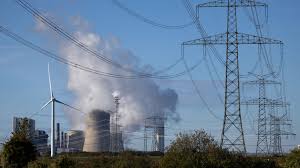
Pakistan’s Minister for Power Sardar Awais Leghari has announced the government’s plan to auction surplus electricity to industries. This initiative, designed to stimulate industrial growth and create job opportunities, was detailed in a press statement from the Ministry of Energy in January.
Leghari explained that the surplus electricity would be sold competitively, aiming to maximize benefits for Pakistan’s economy and industrial sector.
He also discussed the National Electric Vehicle (EV) Policy, which seeks to promote electric vehicles across the country. To make EVs more affordable, electricity tariffs for EV charging stations have been significantly reduced. This step, he said, supports the government’s broader goal of promoting sustainable energy solutions and reducing environmental impact.
However, energy experts have raised concerns regarding the feasibility of these plans on two key fronts. First, they question the accuracy of Pakistan’s claimed power generation and distribution capacity.
Although the government asserts a power generation capacity of 43,000 MW, experts argue that this number is misleading, as there is a significant gap between installed capacity and actual generation capacity. Many power plants often operate below their full potential, and as a result, the actual generation capacity is much lower than reported. They say the system cannot distribute more than 22000 MW of electricity.
Secondly, experts are concerned about the ability of Pakistan’s distribution companies, known as Discos, to handle the increasing demands of power distribution. Senior engineers have pointed out that these companies lack the infrastructure and capacity to effectively manage the power they generate.
One senior engineer highlighted the situation at HESCO, a Disco in Sindh, which struggles to manage medium voltages due to defective switches caused by continuous load-shedding. According to the engineer, only NTDC (National Transmission and Despatch Company) can manage such tasks, yet the situation in HESCO and other Discos remains dire. “How will the government execute its plans when these companies are so devastated?” the engineer questioned. He further noted that a Disco in Sindh had been supposed to complete 12 to 13 projects to install new grid stations and substations, but these projects remain incomplete.
The engineer also revealed a troubling incident in Hyderabad a few years ago, where a transformer explosion resulted in several fatalities. The cause was traced back to faulty equipment—12 transformers in the city had been installed using diesel instead of oil for cooling. This disaster, the engineer emphasized, was a stark example of the ongoing inefficiencies and risks in the country’s power distribution network.
In addition to addressing these challenges, Leghari outlined several reforms in the energy sector. These include efforts to reduce electricity tariffs, eliminate circular debt, and address inefficiencies in the pricing system, which he described as unsustainable. The government is also revising agreements with Independent Power Producers (IPPs) to ensure greater transparency and long-term sustainability. Revisions are also planned for government-owned IPPs in the next phase. By 2025, the government will no longer oversee electricity trade, and instead, consumers and power companies will negotiate electricity purchases directly. This shift is expected to foster competition and benefit all stakeholders. Industrial estates and economic zones will also soon take over the management of their own power distribution systems, reducing inefficiencies and encouraging industrial activity.
Leghari also mentioned the ongoing privatization of electricity distribution companies and efforts to reduce the tax burden on consumers.
On the topic of coal-based power plants operated by Chinese companies, Leghari revealed that these plants would transition from using imported coal to locally mined coal from the Thar region. This move is expected to reduce import costs and strengthen the local economy.
In a separate meeting, Leghari briefed US Ambassador Natalie A. Baker on recent reforms in the power sector. He emphasized the government’s commitment to appointing independent boards of directors for state-owned enterprises to ensure merit-based decision-making. Baker invited Leghari to participate in the Energy Security Dialogue in Washington, underscoring the importance of his involvement.
– ER Report
